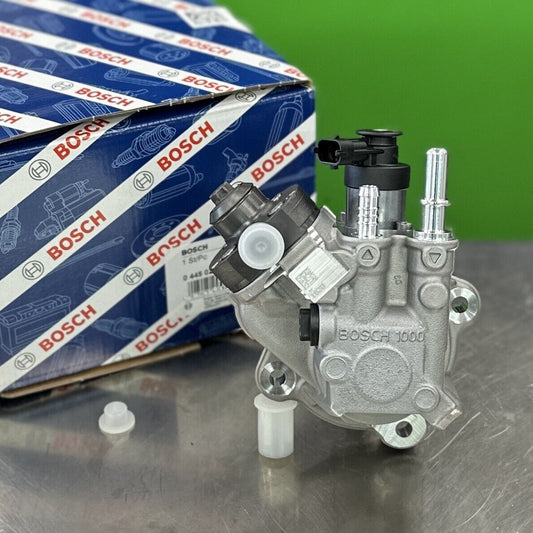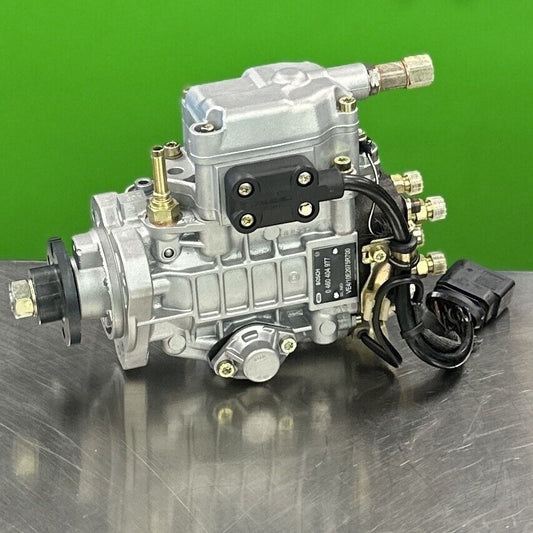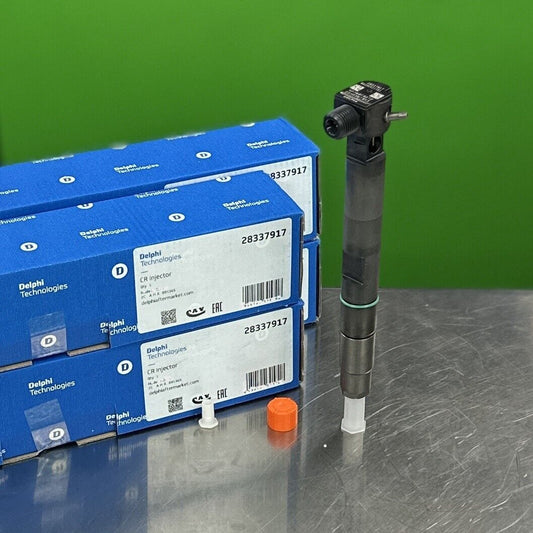Isuzu 6HK1 Common Rail Injector Troubleshooting: Diagnosing and Solving Common Problems
When it comes to Isuzu 6HK1 common rail injectors, troubleshooting common problems is essential for ensuring optimal performance of diesel engines. These vital components play a crucial role in fuel delivery and combustion efficiency, making it imperative to address any issues promptly. By diagnosing and solving common injector problems, you can prevent potential engine malfunctions and maintain the smooth operation of your vehicle.
Understanding the intricacies of common rail injectors is the first step in effective troubleshooting. These precision-engineered devices are responsible for delivering fuel to the engine cylinders at high pressure, ensuring proper combustion. Any malfunction in the injector system can lead to a range of issues, from decreased power output to increased fuel consumption. By familiarizing yourself with the function and importance of common rail injectors, you can better grasp the significance of timely troubleshooting.
One of the telltale signs of injector problems is a noticeable decline in engine performance. If your vehicle is experiencing sluggish acceleration, rough idling, or misfiring, it could indicate issues with the injectors. Additionally, an increase in fuel consumption without a corresponding increase in mileage may point to injector inefficiency. By paying attention to these symptoms, you can proactively address potential problems before they escalate.
Diagnosing injector issues requires the use of specialized tools and techniques designed to pinpoint the root cause of the problem. Through the use of diagnostic equipment such as pressure gauges and electronic scanners, mechanics can identify faulty injectors and determine the extent of the damage. By employing these diagnostic methods, you can streamline the troubleshooting process and expedite the repair of Isuzu 6HK1 common rail injectors.
Common problems encountered with Isuzu 6HK1 common rail injectors include clogging, leakage, and electrical faults. These issues can arise due to various factors, such as contaminated fuel, wear and tear, or electrical malfunctions. Clogging of the injectors can lead to uneven fuel distribution, affecting engine performance, while leakage can result in fuel wastage and potential safety hazards. Electrical faults, on the other hand, can disrupt the injector's operation, causing engine misfires and stalling.
When it comes to troubleshooting Isuzu 6HK1 common rail injector problems, having a comprehensive guide at your disposal is crucial. By following step-by-step procedures and utilizing effective repair strategies, you can address common injector issues efficiently. From cleaning and flushing clogged injectors to replacing faulty components, there are various solutions available to rectify injector problems and restore engine performance.
Understanding Common Rail Injectors
Common rail injectors play a vital role in the operation of modern diesel engines, serving as the heart of the fuel delivery system. These sophisticated components are responsible for precisely injecting fuel into the combustion chamber at high pressures, ensuring optimal performance and efficiency. Imagine them as the skilled archers of the engine world, delivering fuel with pinpoint accuracy to ignite the powerful explosion within the cylinders.
Unlike traditional fuel injection systems, common rail injectors operate independently of the engine speed, allowing for greater control over the fuel delivery process. By storing fuel in a common rail that supplies all injectors, these advanced components can respond quickly to the engine's demands, enhancing both power output and fuel economy. It's like having a team of synchronized dancers performing a flawless routine, each injector playing its part seamlessly.
One of the key advantages of common rail injectors is their ability to deliver multiple injections per combustion cycle, optimizing fuel combustion for cleaner emissions and improved performance. This precise control over the injection timing and quantity results in smoother engine operation and reduced noise levels, enhancing the overall driving experience. Think of common rail injectors as the conductors of a symphony orchestra, orchestrating a harmonious blend of power and efficiency.
Signs of Injector Problems
When it comes to Isuzu 6HK1 common rail injectors, being able to recognize the signs of potential problems is crucial for maintaining the performance and efficiency of your diesel engine. These components play a vital role in fuel delivery and combustion, so any issues can have a significant impact on overall engine operation.
One of the most common signs of injector problems is poor engine performance. If you notice a decrease in power output, sluggish acceleration, or difficulty starting the engine, it could indicate issues with the injectors. Additionally, increased fuel consumption without a corresponding increase in engine power can also point towards injector problems.
Rough idling is another key indicator of potential injector issues. If your engine is vibrating excessively or running unevenly at idle, it may be a sign that one or more injectors are not functioning correctly. This can lead to inefficient fuel combustion and ultimately affect the overall performance of your vehicle.
Furthermore, black smoke coming from the exhaust pipe can be a visible sign of injector problems. This typically indicates that the fuel is not being burned efficiently, leading to excess fuel being expelled as soot. Addressing injector issues promptly can prevent further damage to the engine and ensure optimal performance.
Diagnostic Techniques
When it comes to diagnosing issues with Isuzu 6HK1 common rail injectors, having the right diagnostic techniques at your disposal is crucial. These techniques serve as the detective tools that help uncover the underlying problems affecting the injectors. By utilizing a combination of advanced tools and expert knowledge, technicians can efficiently pinpoint the root cause of injector malfunctions.
One commonly used diagnostic technique is pressure testing. This method involves checking the pressure levels within the fuel system to ensure that the injectors are receiving the correct amount of fuel at the right pressure. Any deviations from the specified pressure range can indicate potential issues with the injectors, such as clogging or leakage.
Another effective diagnostic tool is injector balance testing. This test evaluates the performance of each injector by measuring the amount of fuel delivered by individual injectors. Discrepancies in fuel delivery among injectors can point to problems like blockages or faulty injector nozzles.
Furthermore, electrical testing plays a crucial role in diagnosing injector issues. By examining the electrical connections and signals related to the injectors, technicians can identify wiring faults or electronic malfunctions that may be affecting injector performance.
Additionally, visual inspection is a fundamental diagnostic technique that involves physically examining the injectors for any visible signs of damage, corrosion, or wear. This method can reveal issues like fuel leaks, injector body cracks, or loose connections that require immediate attention.
Moreover, data logging and analysis have become essential diagnostic techniques in modern diesel engines. By collecting and analyzing data from the engine control unit (ECU) related to injector performance, technicians can detect irregularities in fuel delivery patterns and diagnose complex injector issues accurately.
Combining these diagnostic techniques with a systematic approach to troubleshooting can streamline the process of identifying and resolving Isuzu 6HK1 common rail injector problems. By leveraging the power of advanced diagnostic tools and expert knowledge, technicians can ensure the optimal performance and longevity of these critical components in diesel engines.
Common Injector Issues
When it comes to Isuzu 6HK1 common rail injectors, several common issues can arise, impacting the performance and efficiency of diesel engines. These problems can range from minor inconveniences to major malfunctions, requiring prompt attention and resolution. Let's delve into some of the most prevalent injector issues faced by Isuzu 6HK1 engines:
- Clogging: One of the primary issues encountered with common rail injectors is clogging. This occurs when deposits or contaminants obstruct the injector nozzles, hindering the proper flow of fuel into the combustion chamber. Clogging can lead to inefficient fuel combustion, reduced engine power, and increased emissions.
- Leakage: Injector leakage is another common problem that can affect the performance of Isuzu 6HK1 engines. This issue arises when the injector seals or components wear out, causing fuel to leak into areas where it shouldn't. Leakage can result in fuel wastage, engine misfires, and potential safety hazards.
- Electrical Faults: Electrical faults in the injector system can also pose significant challenges. These faults may manifest as wiring issues, faulty connectors, or sensor malfunctions, disrupting the communication between the injectors and the engine control unit. Electrical faults can lead to erratic engine behavior, poor fuel efficiency, and overall performance issues.
Addressing these common injector issues promptly is crucial to maintaining the optimal performance and longevity of Isuzu 6HK1 engines. By understanding the root causes of these problems and implementing effective troubleshooting techniques, mechanics and vehicle owners can ensure smooth operation and reliability of their diesel vehicles.
Troubleshooting and Solutions
When it comes to troubleshooting Isuzu 6HK1 common rail injector issues, it's essential to approach the task systematically and methodically. One of the first steps in diagnosing problems with these crucial components is conducting a thorough visual inspection. By examining the injectors for any signs of physical damage, leaks, or blockages, you can gain valuable insights into the underlying issues affecting their performance.
Additionally, utilizing diagnostic tools such as a pressure gauge can help in determining if the injectors are delivering fuel at the correct pressure levels. Fluctuations or deviations from the recommended pressure range could indicate potential problems that need to be addressed promptly to prevent further damage to the engine.
Furthermore, conducting a comprehensive fuel system analysis can aid in identifying any underlying issues that may be affecting the performance of the Isuzu 6HK1 common rail injectors. Checking for fuel contamination, filter blockages, or fuel pump malfunctions can provide valuable information for troubleshooting and resolving injector-related problems.
When it comes to resolving common injector issues, one effective solution is to perform a thorough cleaning of the injectors to remove any accumulated deposits or contaminants that may be obstructing the fuel flow. Utilizing specialized cleaning solutions and equipment can help restore the injectors to their optimal functioning and improve overall engine performance.
In cases where injector clogging is a recurring problem, replacing the injectors with new or reconditioned units may be necessary to ensure long-term reliability and efficiency. Working with a qualified technician or mechanic to properly install and calibrate the new injectors can help prevent future issues and optimize engine performance.
Moreover, addressing electrical faults or wiring issues that may be affecting the operation of the Isuzu 6HK1 common rail injectors is crucial for ensuring consistent and reliable fuel delivery. Checking the injector connectors, harnesses, and control modules for any signs of damage or corrosion can help in resolving electrical-related problems effectively.
Overall, by following a systematic approach to troubleshooting and implementing appropriate solutions, you can effectively diagnose and resolve common problems associated with Isuzu 6HK1 common rail injectors. Taking proactive measures to maintain and service these critical components can help ensure optimal engine performance and longevity in diesel vehicles.
Frequently Asked Questions
-
What are common signs of Isuzu 6HK1 common rail injector problems?
Common signs of injector issues include poor engine performance, increased fuel consumption, rough idling, and potential engine misfires. These symptoms may indicate clogging, leakage, or electrical faults within the injectors.
-
How can I diagnose problems with Isuzu 6HK1 common rail injectors?
Diagnostic techniques such as using specialized tools like pressure gauges, flow meters, and visual inspections can help pinpoint specific issues with the injectors. It is essential to follow proper diagnostic procedures to accurately identify the root cause of the problem.
-
What are the common issues encountered with Isuzu 6HK1 common rail injectors?
Common problems include injector clogging due to debris or contaminants in the fuel, leakage caused by worn seals or O-rings, and electrical faults that can disrupt the injector's operation. Understanding these issues can help in effective troubleshooting and repair.
-
How can I troubleshoot and solve Isuzu 6HK1 common rail injector problems?
Effective troubleshooting involves identifying the specific issue, such as clogging or leakage, and then implementing appropriate solutions. This may include cleaning the injectors, replacing faulty components, or adjusting fuel delivery settings to ensure optimal performance.



